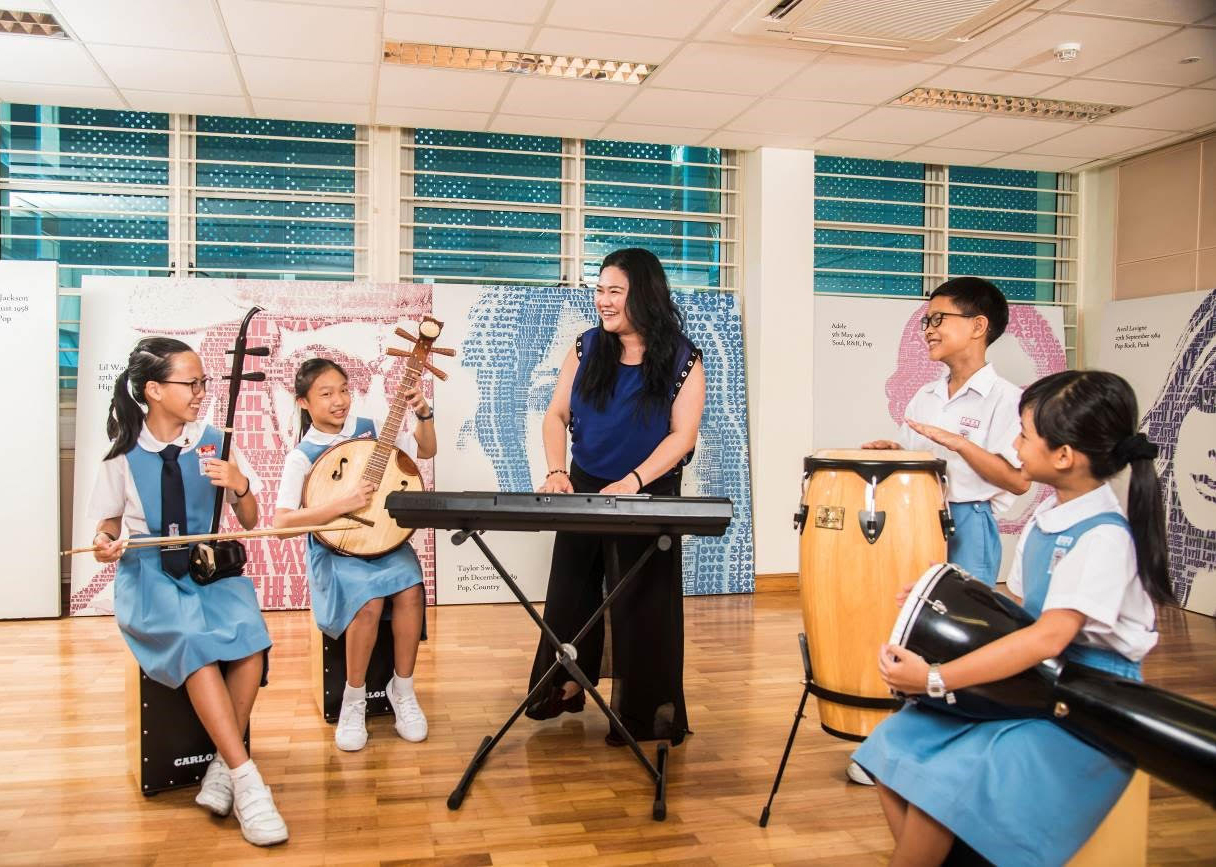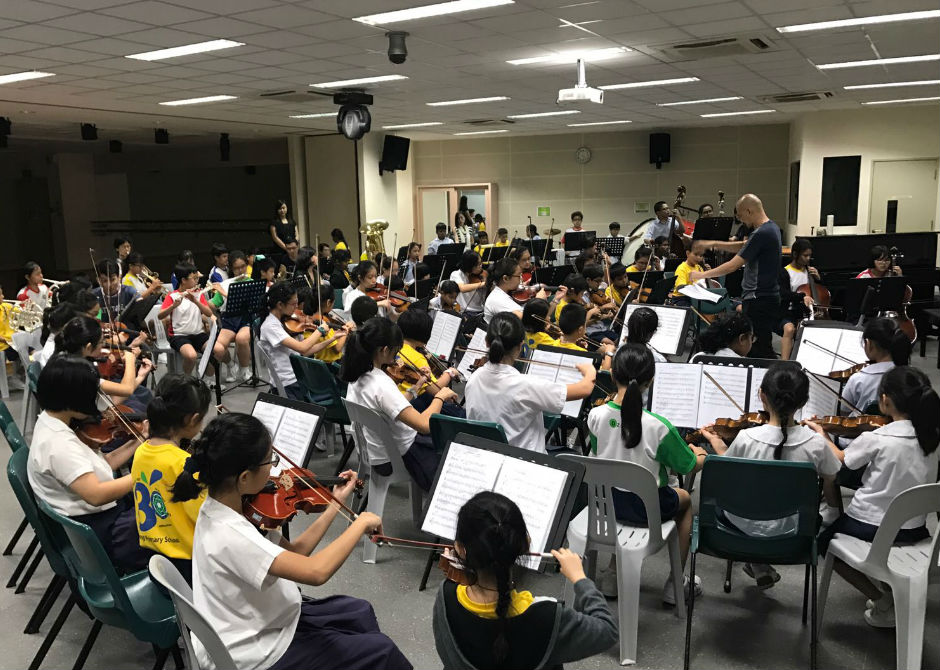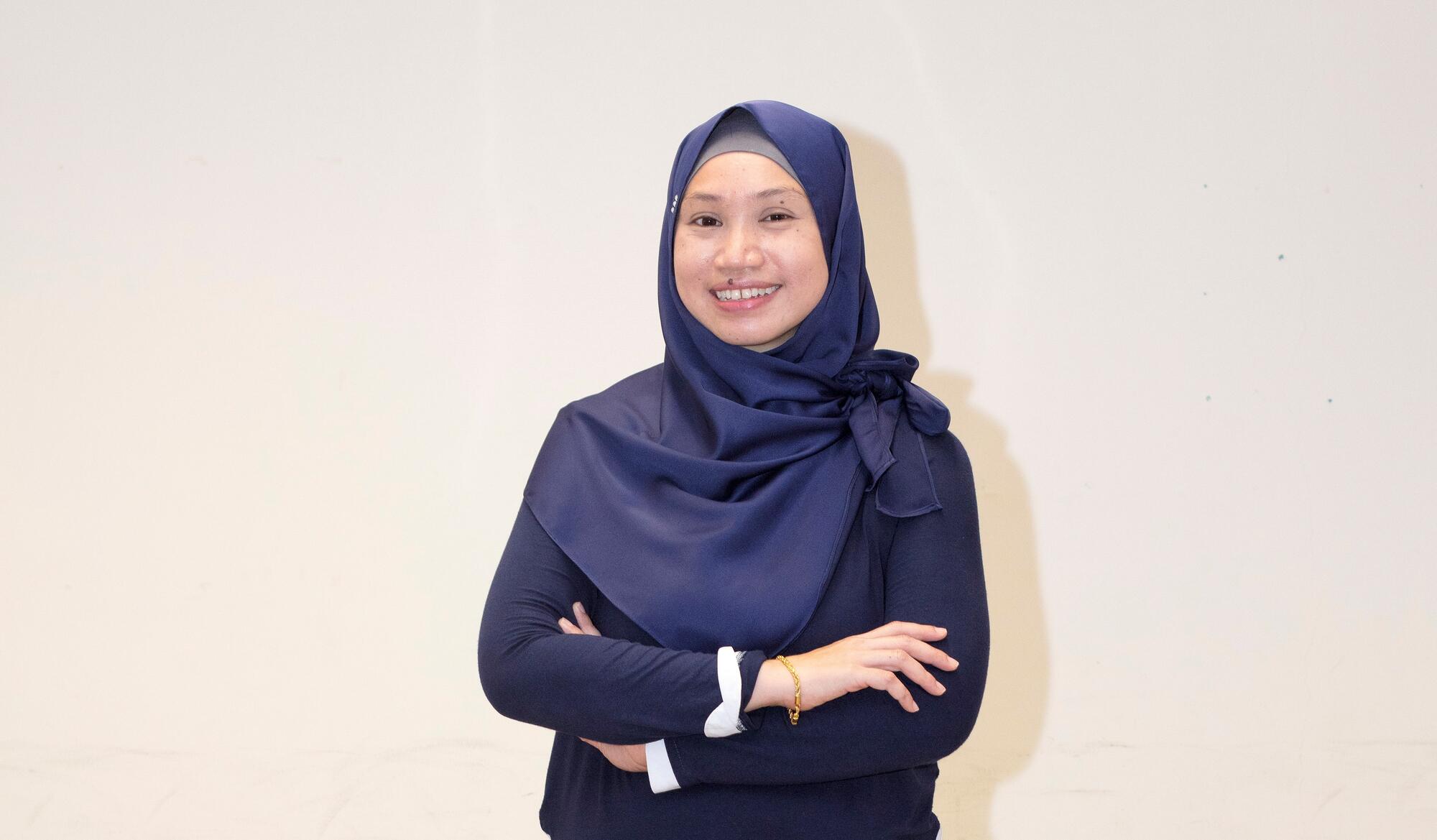Mdm Sarah Koh Hui Khoon, Holy Innocents’ Primary School, President’s Award for Teachers 2019 Recipient
“What is an ‘A’? If a child can sing well, but can’t play an instrument, is that an ‘A’?”
This is a question that led Mdm Sarah Koh, Head of Aesthetics and Special Assistance Plan (SAP), to introduce a system of tracking the formative progress of every student in the class of her school.
“Every student has something he or she can be good at,” Sarah says. So, she captures each child’s acquired musical competencies at their current level of attainment and considers the degree of teacher-invention needed for the child to progress.
“Teachers must have sharp observation skills. As a subject specialist, you must know what your students are able to do now; what they are not able to do yet and who amongst your students are of a certain level of proficiency, and who are not at this moment.”
“I don’t see this as ‘grading’. It’s observation of a student’s formative progress in learning. There is never a day where I’m walking around with a clipboard and simply checking off a list.”
Sarah’s motivations stem from her experience of taking private piano lessons as a child. “My teacher was just preparing me to do well in exams,” she says. “I enjoyed watching and aspiring to play like others, but I didn’t like being taught specifically to pass exams.”
Fortunately, Sarah’s childhood experiences did not snuff out her passion for music, nor deter her from becoming a certified classical singer, pianist and handbell performer.
Believing it is important for a music teacher to continue honing one’s craft, she is also an active handbell ringer who performs with a professional ensemble.
“I want my students to do their best, enjoy themselves and not worry about what they cannot achieve yet. I want to help them make meaning of my lessons,” Sarah says, “because that is what will inspire students to learn more.”
Music for all
In 2011, Sarah pioneered the Young Musicians’ Programme in her school. This programme offers lower primary students the chance to experience playing Chinese orchestral instruments from an early age.
Many of Sarah’s students have achieved graded proficiency in their respective instruments, having first picked up the instruments through the programme.
Sarah also decided to switch from teaching the Western recorder to getting all Primary 3 students to learn the erhu, in line with the SAP’s goal of fueling an appreciation of arts and culture. In Primary 4, students start to learn the bells and hand-chimes and in the upper primary, the inclusion of the ukulele and ethnic percussions.
Whatever the instrument, the instructional approach is the same.
“We introduce music that will not just make one or two pupils shine as solo players,” Sarah says. “We try to ensure that an entire class is required to perform one piece of music, so students will understand their role in an ensemble. We make sure there’s something for everybody and that nobody is left out.”
This applies to students with special needs as well, some of whom may have challenges performing as part of a group.
“If [these students] have trouble with pitch, we place them within a ‘wall of singers’ – this helps them to hear the ‘right’ sounds and make moderations to match the pitches accordingly,” she says. “I once had a student with autism who had difficulty speaking and sitting still. I brought out a xylophone. She surprised everyone in the Primary One class by being the only student who could play the notes with a steady pulse.”
“Her face lit up when everyone clapped for her.”
It begins with a teacher
As a child, Sarah looked forward to music lessons in school. “I had a teacher who could sing beautifully,” Sarah says. “It made me look up to her. For her to be so passionate about music and singing, it made me want to have the passion she had.”
Her ambition to become a teacher was initially dismissed by her mother, who pointed out to Sarah that she was too impatient to teach others. Today, no doubt having developed the requisite patience along with other pedagogical skills, Sarah is entering her 17th year of teaching.
Sarah’s desire to be a teacher was ignited while tutoring kids during her polytechnic days. She was studying business and human resource. Her students came from various family backgrounds, including some from single-parent homes.
“I felt that, besides the academic exercises I had them do, the more I talked and related to the children, the better their results would be. I realised they needed someone to talk to, to listen to them and also help them feel that they are learning within a safe space, free from judgement,” she says.
“That’s when I began to think, ‘Maybe, I should become a teacher.’”
Her philosophy remains the same today. She spends time speaking to her students, getting to know them better, and sharing her own life experiences.
“To those who feel deeply about music, I ask them where they see themselves with an instrument – regardless their desire or non-desire to become a musician,” she says. “When I share my own learning experiences, it helps me establish that connection which makes me a lot more relatable to my students.”
Sarah sees her role going beyond teaching music as a subject, to helping her students make the connection between the arts and other aspects of learning.
Adopting an integrated arts approach means that Sarah’s upper primary students study different countries across the globe, learning not only about art and music, but also about culture and perspectives. This helps students get “a sense of the world” and broadens their horizons.
She also organises cultural immersion trips. These international experiences have taken students to Taiwan and China, where they have learned about the Chinese language, culture and the rich artistic tapestry of the Chinese diaspora.
“My belief is in providing opportunities to the students. Every child should have the chance to be exposed to art and music. Broadening their experiences enables us to help them make the connection between the arts and other aspects of learning.”
“I tell them my job is to be a catalyst for their passion. They can take this passion and apply it to learning an instrument or to other aspects of work and play, to understanding of peoples, and most of all, to embrace that joy that comes from learning for life.”






